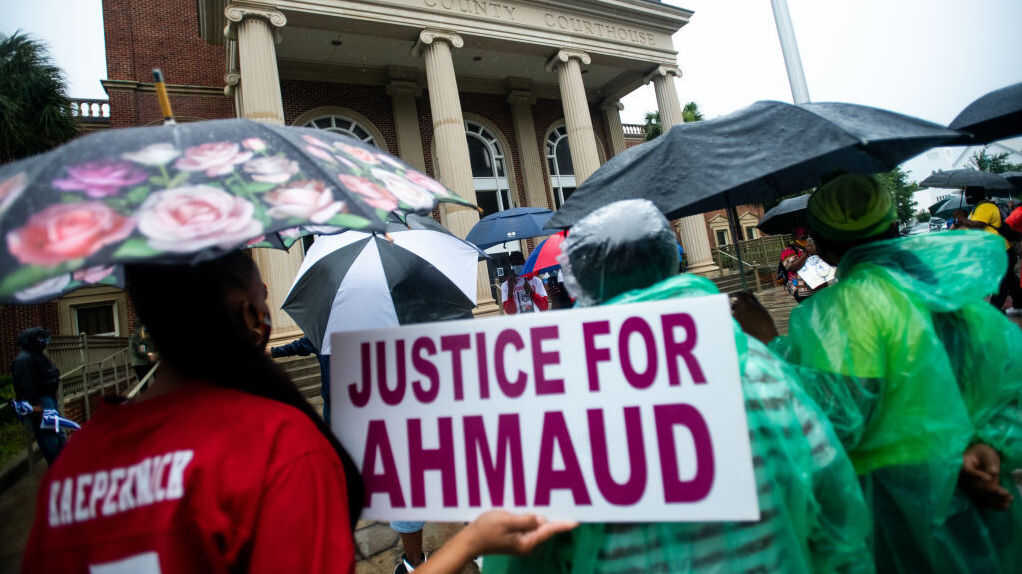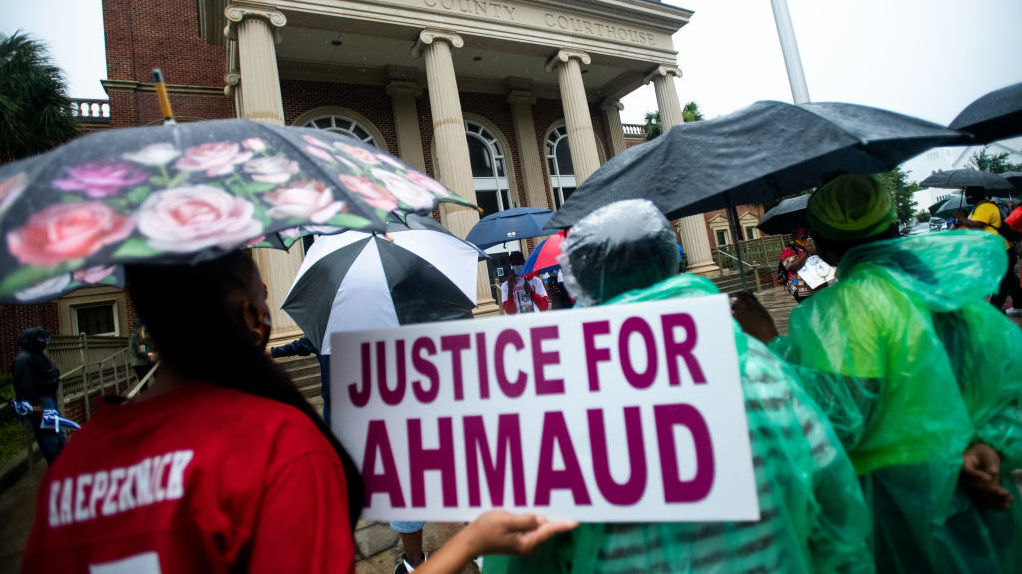
Demonstrators gather at the Glynn County courthouse during a court appearance by Gregory and Travis McMichael, two suspects in the fatal shooting of Ahmaud Arbery, on June 4, 2020 in Brunswick, Georgia. Sean Rayford/Getty Images hide caption

Demonstrators gather at the Glynn County courthouse during a court appearance by Gregory and Travis McMichael, two suspects in the fatal shooting of Ahmaud Arbery, on June 4, 2020 in Brunswick, Georgia.
Sean Rayford/Getty ImagesOne of the killings that sparked racial justice protests last year is again in the national spotlight, with a trial that begins this week in Brunswick, Ga. Three white men are accused of murdering Ahmaud Arbery, a 25-year-old Black man shot and killed as he was jogging down a residential street.
NPR correspondent Debbie Elliott reports on the defendants' expected arguments and the evidence stacked against them in a trial that serves as yet another test case for racial justice.
Email us at

 Live Radio
Live Radio